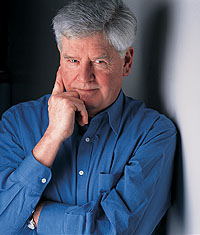

1. Establish the direct popular vote of the president.
"This is the most popular method and regularly receives the support of 80 percent of the American public in polls. Whoever has the majority or plurality of the popular vote is the winner. If the plurality is less than 40 percent, we would have a run-off between the top two candidates. If the plurality is 40 percent or above, the winner is the president. There are several states that elect their governors under this plurality system.
"The smaller states would be clobbered in terms of national policy under this system. Presidential politics would ignore places like North Dakota or Idaho and pay attention to California, Texas and New York. It magnifies the role of the populous states that tend to vote for one party. Of course, this requires a constitutional amendment."
2. Impose a proportional system of selecting electors.
"If the direct vote idea stalls, this alternative would preserve the Electoral College but get rid of its winner-takes-all system. Under a proportional system, you determine the split by popular vote within each state. If Gore got 56 percent of the Washington state vote, he would get 56 percent of the electors. This idea is less radical than direct vote so it is a little easier to effect, but to get all the states to do it, you'd need a constitutional amendment."
3. Select electors by congressional district.
"This one moves the winner-takes-all system down one level. Instead of considering the entire state, each congressional district would determine one elector. Whoever carried the state would get two at-large electors as well. In our state we have 11 electors in the Electoral College. In the last election, I think that Gore won six of our congressional districts and Bush won three. Gore also took the state, so the final total would be 8 for Gore and 3 for Bush.
"Conservatives like this proposal a lot. It gives maximum power to the smaller states. One other side effect, it encourages third party candidates enormously."
4. Create automatic electoral votes.
"Instead of having an actual, living elector who makes his or her vote on Dec. 18, just automatically award the electoral vote to the winning candidate. This is the most modest of reform proposals and would get rid of the threat of a wayward elector. Even though it is very benign, it would still require the passage of a constitutional amendment."
5. Institute election process reforms.
"The flaw in Florida is not in the Electoral College, it's in election process abuse. We've got to see election law reform and strengthen the federal election system. Some of those steps include banning butterfly ballots, prohibiting unmonitored voting precincts, outlawing inaccurate voting technologies and eliminating inequities in the counting of overseas ballots. The Federal Elections Commission should be strengthened and broadened in its scope."
What the Future Holds:
"As far as the Electoral College goes, nothing will be done. There are too many vested interests in the current system. Any time you change a system like this, there are winners and losers. The Electoral College was a device to guarantee that small states would not be beat up by big states. The Federalist Papers are explicit on this. With reform or abolishing the Electoral College, it significantly reduces the power of small states. In 2004 we will be using exactly the same system we've used over the years.
"On other issues, significant attention will be paid to election law reform. What we've seen in Florida is shocking. Florida is revealing the warts of the election system. Although it really doesn't have anything to do with the mess in Florida, probably the biggest boost will go to campaign finance reform."
|
Political Science Professor David Olson is a former chair of the department and was the first UW professor to hold the Harry Bridges Chair in Labor Studies. The author of five books about politics, including Theft of the City, Olson is often quoted by local and national media and recently gave expert witness testimony in the U.S. 9th Court of Appeals case on blanket primaries.